The scenic Southern Cross-Island Highway (
Since the highway zigzags through a wide area of the Yushan National Park (
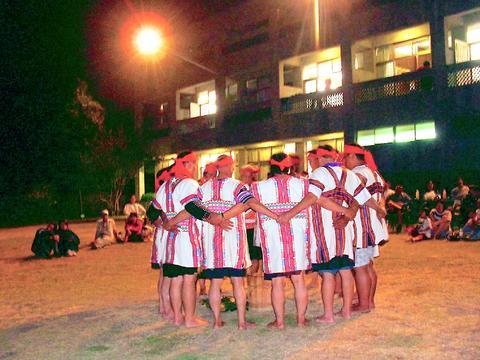
PHOTO: DEREK LEE, TAIPEI TIMES
Highway No. 20 was completed in 1973 but was opened to the public in 1993, because of the dangers inherent in its treacherous terrain and the frequent landslides.
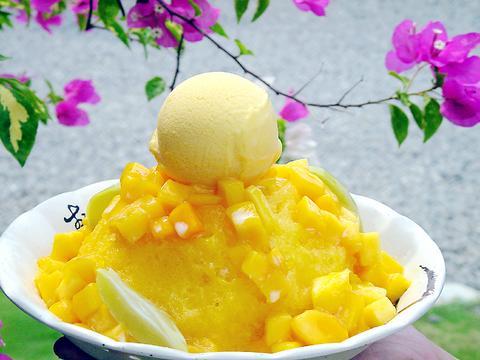
The highway rises from a few hundred meters above sea-level at Tainan to 2,731m at Yakou (土
More importantly, this spectacular route, stretching 209km from Tainan to Taitung, passes by the southwest entrance of the Yushan National Park, at the route's 109.5km mark and extends to the 147km mark, at the west end of Yakou Tunnel. The terrain of the park rises from Lakulaku Stream Valley (
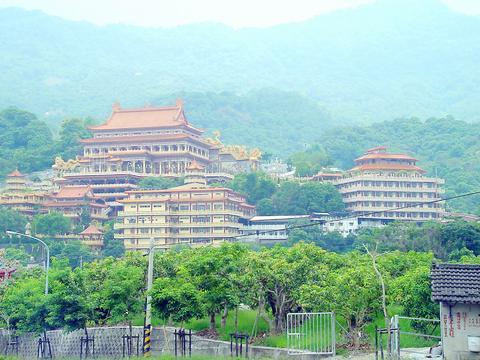
Such a topographically varied territory with a mild temperature gives birth to dramatic natural scenery: steep river valleys, breathtaking gorges and giant Taiwan red cypress or Morrison spruce forests.
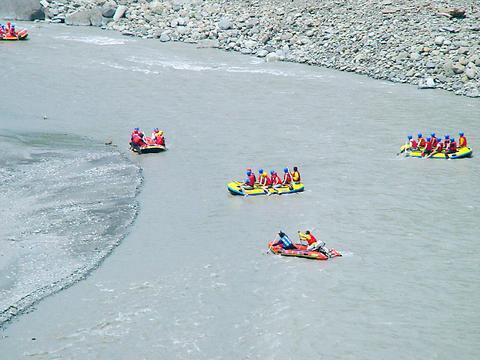
The area's temperature is generally cool, though there is great variation between day and night and between seasons. Temperatures go as high as 30?C in the summer and drop below-zero in the winter. Best of all, snow is rarely seen on the route, mainly due to a lack of moisture in the air.
From January to March, as soon as spring touches the ground, the area is decorated with numerous flowers such as Taiwan cherries, azaleas and plum blossoms. The Taiwan lily, Formosan raspberry and glandular rosa (
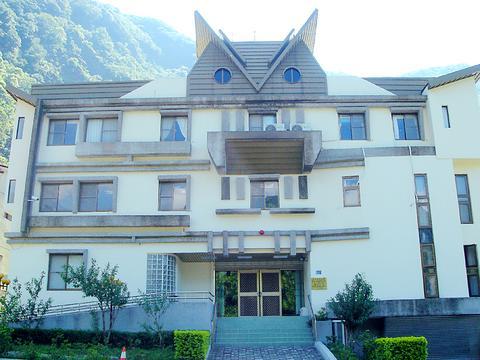
Since different animals live in different floral zones, the rich variety of vegetation in Yushan National Park breeds a wide range of fauna, such as Formosan macaque, wild boar, black bear and numerous bird species, both endemic and migratory.
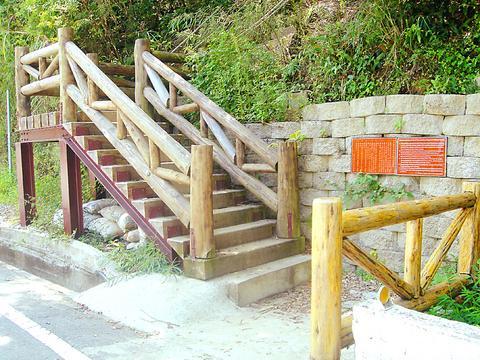
Across these vast mountains and green valleys, a ferociously brave tribe, whose members proclaim themselves "the sons of Yushan," has resided for many centuries.
The present-day Bunun tribe (
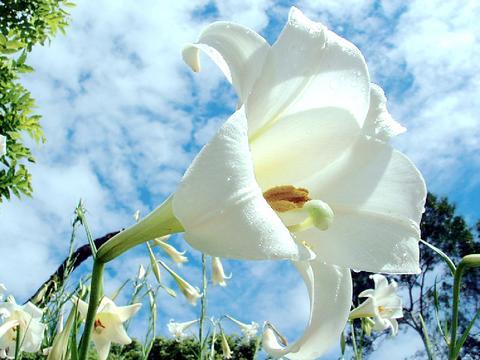
The Bunun are an internationally renowned group of people who are blessed with an amazing talent of choral singing. Every year, between the months of April and July, the Bunun tribesmen hold two traditional festivals.
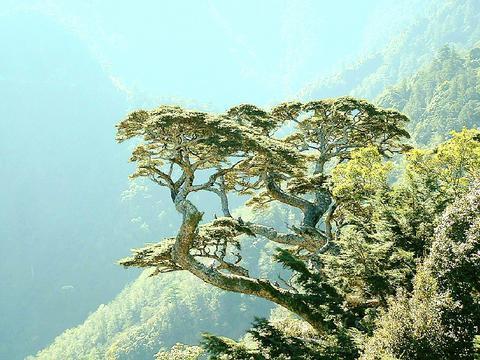
PHOTO COURTESY OF CHEN JUNG-LUNG
At the height of each ceremony, a team of eight or more adult men (no women are allowed) form a small, close circle and sing praise songs such as Pasi But But (Praying for a Rich Millet Harvest, 祈禱小米豐收歌) or Manandi, (Chief Ritual Song, 首祭之歌) to worship their gods in eight vocal parts (a choir normally sings four vocal parts in the West).
According to Wu Rung-shun (
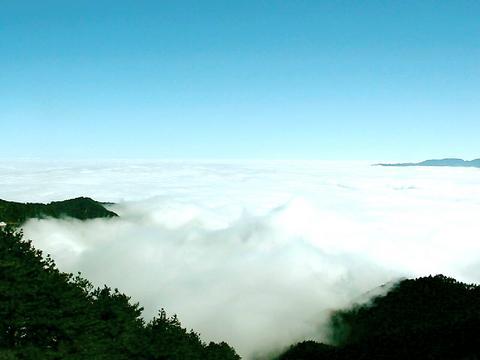
The Bunun tribe's natural singing talent has been passed on to descendents such as Biung (
Due to an absence of snow and severe weather, the area is often crowded in winterwith people who visit to climb nearby mountains, hike trails or ride cross-country bikes.
The "three-stars (mountains) of the Southern Crossing" (
Hikers who have planned well may make their trip to and from the mountains in a day if they start their journey from Yakou. A nearby lodge (土
On the road: Provincial Highway No. 20
1. Yujing (
2. Yushan Baoguang Sacred Temple (
3. Baolai (寶來). Excited about riding rapids? White water rafting is available in this tiny mountain village, a 21km drive from Jiasian, from May to October. It's generally a 13km, eight to 10-person raft ride, on the Launong Stream (荖濃溪) and takes about two hours to complete. The cost is around NT$700 to NT$800 per person, above the age of 12. After all this excitement and long-distance driving, you might be ready to take a dip and relax in one of the village's hot springs. This amazing village is home to many hot spring hotels. Fun Chen Sawuna Resort Hotel (芳晨溫泉渡假村), located at the street end of Boalai village, is an ideal place to spend a night.
4. Meishan Youth Activity Center (梅山青年活動中心) is another 30km eastward from Baolai and is a modern building constructed by the Chinese Youth Corps, just like Yakou Lodge. It is a quiet, exclusive lodge for those who choose to be close to nature. Both the Meishan Visitor Center and Bunun Culture Exhibition Center are nearby. The Meishan Police Squad office next to them by the roadside looks like an owl, an auspicious animal in the Bunun tribe's customs. It has won a lot of praise from visitors for showing the Bunun people's sense of humor.
5. Jhongjhihguan (
6. Tianchih is an important landmark on the highway and is named after the lake in the high mountains. The lake, a few kilometers away from Jhongjhihguan, is 2,200m above sea level.
7. Kuaiku (
8. Daguanshan Tunnel (
For Sinying (
From the Tainan area, take National Highway No. 8 to Sinhua (新化) and connect to Provincial Highway No. 20 at Tsochen (左鎮).
From the Kaohsiung area, take National Highway No. 10 to Cishan (

In the March 9 edition of the Taipei Times a piece by Ninon Godefroy ran with the headine “The quiet, gentle rhythm of Taiwan.” It started with the line “Taiwan is a small, humble place. There is no Eiffel Tower, no pyramids — no singular attraction that draws the world’s attention.” I laughed out loud at that. This was out of no disrespect for the author or the piece, which made some interesting analogies and good points about how both Din Tai Fung’s and Taiwan Semiconductor Manufacturing Co’s (TSMC, 台積電) meticulous attention to detail and quality are not quite up to

April 21 to April 27 Hsieh Er’s (謝娥) political fortunes were rising fast after she got out of jail and joined the Chinese Nationalist Party (KMT) in December 1945. Not only did she hold key positions in various committees, she was elected the only woman on the Taipei City Council and headed to Nanjing in 1946 as the sole Taiwanese female representative to the National Constituent Assembly. With the support of first lady Soong May-ling (宋美齡), she started the Taipei Women’s Association and Taiwan Provincial Women’s Association, where she

Chinese Nationalist Party (KMT) Chairman Eric Chu (朱立倫) hatched a bold plan to charge forward and seize the initiative when he held a protest in front of the Taipei City Prosecutors’ Office. Though risky, because illegal, its success would help tackle at least six problems facing both himself and the KMT. What he did not see coming was Taipei Mayor Chiang Wan-an (將萬安) tripping him up out of the gate. In spite of Chu being the most consequential and successful KMT chairman since the early 2010s — arguably saving the party from financial ruin and restoring its electoral viability —

It is one of the more remarkable facts of Taiwan history that it was never occupied or claimed by any of the numerous kingdoms of southern China — Han or otherwise — that lay just across the water from it. None of their brilliant ministers ever discovered that Taiwan was a “core interest” of the state whose annexation was “inevitable.” As Paul Kua notes in an excellent monograph laying out how the Portuguese gave Taiwan the name “Formosa,” the first Europeans to express an interest in occupying Taiwan were the Spanish. Tonio Andrade in his seminal work, How Taiwan Became Chinese,